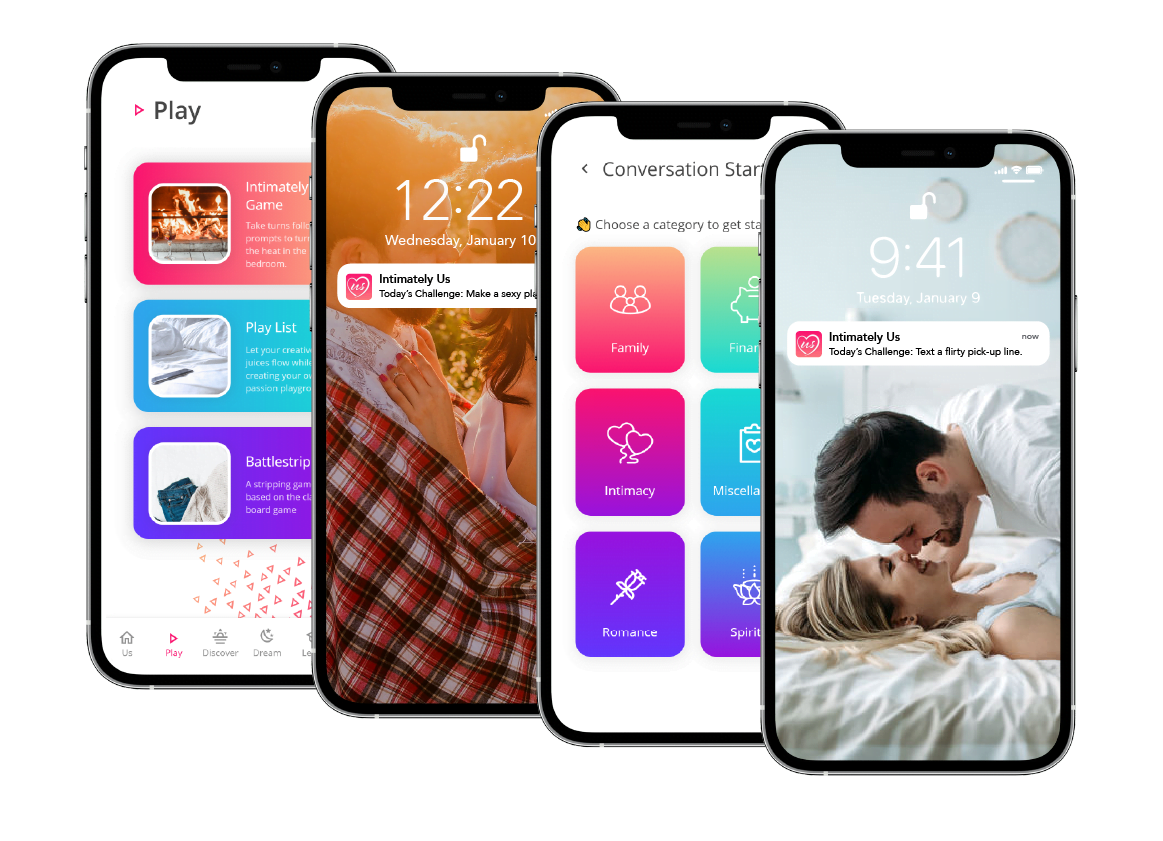Periods suck. At least, that’s what I’ve always been told. However, our podcast guest Ashlee Sorensen thinks differently. In this week’s episode, Ashlee (a health coach and menstrual cycle expert), talks about how to tap into your hormonal superpowers by being aware of your cycle.
Here, I want to share with you what I’ve learned about hormones and periods, and how they can play into our sex lives.
US Women’s Team takes the Cup

The US Women’s Soccer team won the most recent world cup. As journalists looked into the reasons behind the win, they discovered the team had begun using a new workout regime based on the team members menstrual cycles (read the whole Good Morning America article here!) The team learned to optimize their performance by syncing their work out schedule with the 4 different phases of their hormonal cycle. This allowed them to push hard when their bodies were most energetic and then follow their natural cues to rest and rejuvenate.
All women can learn to harness their feminine power by understanding their menstrual cycle. All it takes is tracking and becoming familiar with your own cycle, learning what the 4 “superpowers” are that come from your different hormonal stages, and then strategically optimizing those superpowers.
Myths vs. Facts: What Society Tells Us

Experience has shown me that most women feel a little bit crazy at some point during their cycle. Many feel frustrated that they cannot be consistent in their emotions during this time. Somedays, they are full of energy and gregarious. Other days, they feel worn out and socially unavailable. Men may even view women as being haphazard and hard to understand. The problem here isn’t women’s bodies; it’s a cultural expectation that everyone should function like the average male.
Did you know that men have hormonal cycles too? They happen on a daily basis. A man may have an influx of testosterone in the morning, making him feel energized and ready to take on his daily tasks. As the day continues, his hormone levels decrease and he finishes the day feeling less social and ready to rest. The 9-5 work day was created with this male centric cycle in mind, and society tends to structure around it.
However, women’s hormones cycle on a monthly (or about 28 day) rhythm. We move through the cycle more slowly, meaning we can have days of energy that then lead to days of wanting to rest.

Unfortunately, most of western scientific research has been done on all male participants. In addition, our work/business structure was built for male participation. Women were added-in, and it was assumed that what works for the average male would also work for the average female. But men and women are not the same, and our bodies follow different rhythms. Just because a woman does not follow the same cycle as a man doesn’t mean she is in any way lesser than him.
It’s so important for women to realize they are not “abnormal” or “broken” because they don’t feel consistent from day to day. Women’s bodies, when uninterrupted by birth control, medications, or stress hormones, are more creative, emotionally driven, detail oriented, and nurturing. Modern science and business have more or less been built on a male-coded culture that works around male-cycles. Women aren’t able to use their superpowers as effectively as their bodies are built to ebb and flow monthly, not daily. Learning about the female cycle can not only reassure a woman that she is normal, it can also help her discover the amazing things her body can do!
The Menstrual Cycle
Here’s an overview of a woman’s monthly cycle, along with each phase’s superpower!

Menstrual Phase
This is the week of your menstrual flow (when you are bleeding and “on your period), and the only part of the cycle most women are familiar with. Physically, a woman usually bleeds as her body discards an egg and sheds the uterine lining. Hormone levels are at their lowest here. This is the time your body wants to rest and reflect. It’s also a time of decision-making. To harness this superpower, look at this week as the antidote to burnout. Set firm boundaries around your time and only do what is necessary. Take time to journal, process, nap, and care for yourself.
Follicular Phase
This is usually 7 -10 days after your period/menstrual flow. During this phase, your hormone levels begin to rise. It’s your new beginning! Your body starts to feel more active, you’re planning ahead and coming up with new ideas. In this week’s podcast, Ashlee compares this time to spring as your body starts to “wake up” after the ‘winter’ of menstruation. This phase is a great time to be creative and prepare and plan things out for the month ahead of you.
Ovulatory Phase
For about 3 or 4 days, your body ovulates. This means your hormones are the highest level, and your uterus is prepared for pregnancy. Women in this stage usually feel energetic, attractive, and confident. Your hormones support good communication and socializing. Your libido usually increases too! This is your time to step into authority and to get to know new people. You’ll likely find joy and new energy in outings with friends, intimacy with your husband, working out, or catching up with loved ones.
Luteal Phase
As your hormones wind down, you enter a pre-“nesting” phase. This is the time to batten down the hatches and finish up projects. Tackle that “to-do” list! Your body starts to prepare for pregnancy if an egg has been fertilized or it will switch to preparing for menstruation if an egg hasn’t been fertilized.
Pro-Tip: this might be a good time to up your calories and fuel your body. It is a time for harder, more strenuous workouts in preparation for a period of rest in the menstrual phase.
Tracking Your Cycle is Key!

In order to optimize your body’s natural rhythm, it is crucial to track your cycle! Although we can estimate on average how many days each phase takes, each woman will have an individual cycle length, and this may vary from month to month as well if you struggle with any type of hormonal imbalance.
In addition, it is really important to track your symptoms. Things like acne, hot/cold flashes, hair loss, mood swings etc can help you learn what phase you are in, and what each phase looks like for you. Tracking your symptoms can also help you determine if anything is irregular in your cycle, and could be a sign that your hormone levels may be off. If you think your hormones might be off, you may want to consult a functional medicine practitioner. There are many functional medical practitioners who specialize in women’s hormones. A general doctor will be able to tell you your hormone levels, but may not be able to tell you what they mean or what to do about it. This is why it is important to find a doctor who specializes in women’s hormones.
In the podcast episode, Ashlee discourages her clients from using hormonal birth controls. She feels hormonal birth controls cover up the symptoms of bigger hormonal problems, which can lead to bigger imbalances in hormones. Being in tune with your body and how you move through the different phases of your cycle will be essential to your overall health and learning how to make your cycle work for you, instead of just surviving your cycle.
Planning Sex Around Your Cycle

Wow, that was a lot of information. But now that we know about our hormonal cycles, we can talk about how to use that knowledge to better our sex lives.
Just as the US Soccer team optimized their training program, we can optimize our relationship by being aware of the “superpowers” that come with each phase and how they apply to sex. Below is an example of how a couple might sync their sex life with the wife’s menstrual cycle. (Note, this plan is based on ideas from the book In the Flo by Alisa Vitti. Vitti has a lot of suggestions for planning your eating, exercise, professional, and sexual life to optimize your hormonal cycle)
Menstrual Phase
This is your time to rest and recharge. Sex can help relax the uterus and can relieve cramping for some women. Others feel less stressed about getting pregnant when on their period and can enjoy sex more. Some women don’t want to have sex while they are trying to relax. Only do what feels right for you. Remember to track your feelings and mood changes so you and your spouse can have a specialized guide to sex at this phase tailored just for you.
Follicular Phase
In this phase, your sex hormones reach their lowest point. This means your vagina will not be as wet and you will likely want to use lubricant to achieve penetration. This is a great time to explore other avenues of pleasure. Instead of penetration, maybe try hand or oral stimulation. Some couples may want to take a “sex break” and use this time to touch each other without the expectation of penetration. For more ideas on non-penetrative sex, check out our Anatomy and How-To section!
Ovulatory Phase
This is when your hormones surge and you are feeling good! Have some fun and focus on orgasm. Your high hormone levels may make it easier than usual to reach orgasm. During this phase, most women feel the most attractive and confident. Use this to take control and initiate sex with your spouse. They will love the opportunity to sit back and let “confident you“ take the wheel. And it can be pretty fun to take control of your sexual encounter occasionally.
Luteal Phase
This is when your hormones will peak and then start to decrease. This is a good opportunity for slow, intimate sex. Take the time to explore your partner and how your body is feeling that day. Your sexual drive and arousal may change daily in this stage, so work slowly to allow your body to tell you and your spouse what you need.
Conclusion

A woman’s body can do some pretty amazing things! Our hormonal cycle is a good example of how our own body tries to take care of us. Learning to track and plan around your hormonal cycle can help you take advantage of your body’s natural superpowers you have as a woman and live your most authentic life.
Written by Amanda Severson with Get Your Marriage On!
P.S. If you are looking for a way to start tracking your cycle, the Intimately Us app now has a period tracker!

I love this app! My husband and I are such busy people, this helps us stop and make sure we show the love that we have for each other. I’d give 6 stars if I could!
This is by far the #1 sex app for Christian couples! My wife and I played the games like 5 times over the last week. Sparks are flying and we’ve never felt so close before. Thank you!





